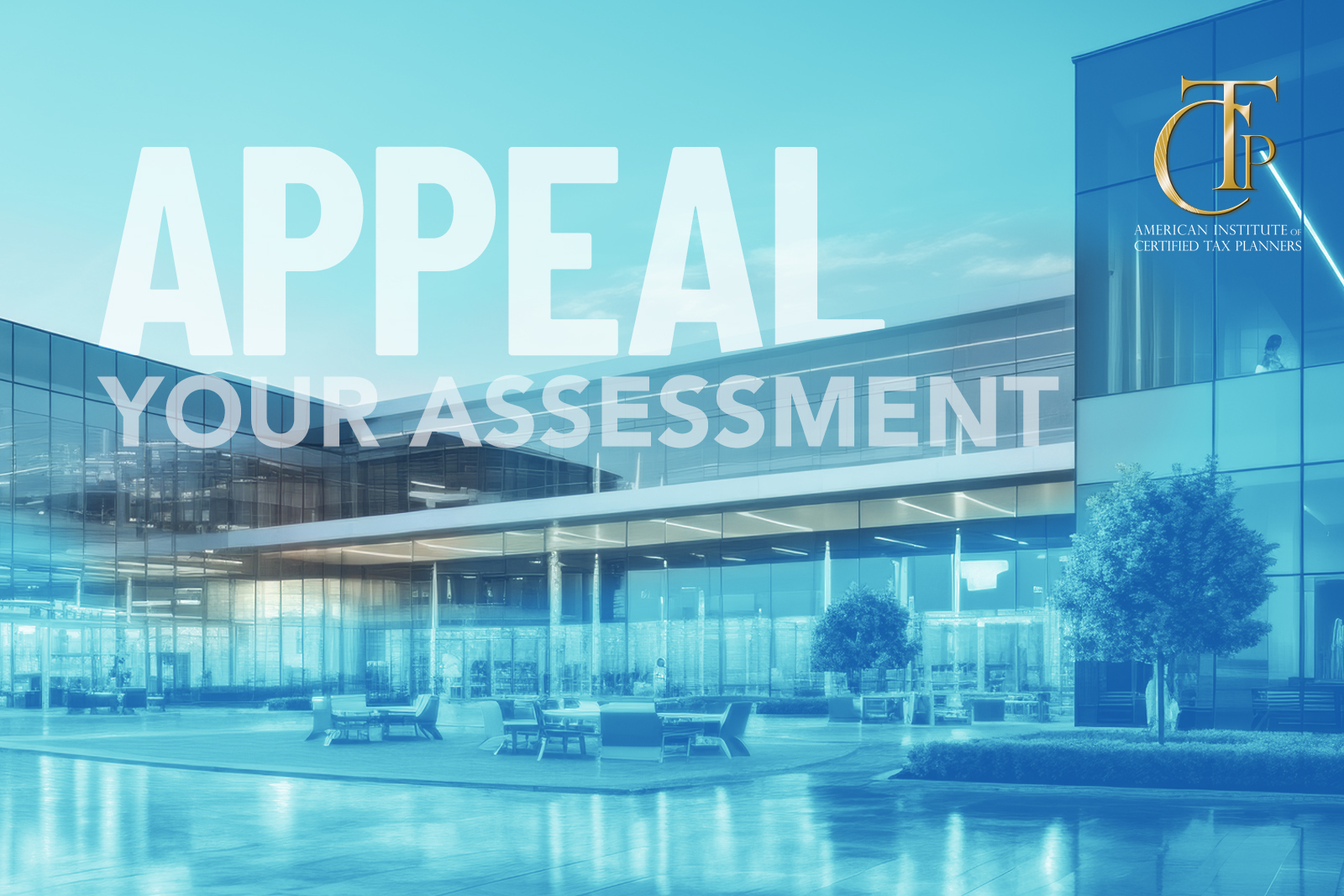Want information on residential property assessment appeals instead? Read here.
Working with property owners can be a lucrative investment—both for your client and for you as a tax professional. To ensure that their income-producing property isn’t losing a huge chunk of its income to taxes, property owners need the support of someone who knows where the tax savings opportunities lie. By helping your clients to build a tax strategy, you can reduce their property taxes, not only when the next bill arrives but also throughout the years to come. One way to do so is to help your client appeal their tax assessment.
Property taxes are based on the assessed value of a property. Local governments appoint assessors to determine each property’s value and update that number on a regular basis, sometimes yearly, sometimes less frequently depending on the jurisdiction. However, the factors that go into a valuation can be complex, and assessors may fail to consider key details that affect how much a specific property is actually worth. This provides you with a prime opportunity to file an appeal and argue for a lower valuation—and therefore a lower tax bill for your client.
In a previous blog series, we discussed guidelines for residential property taxes. Most commercial properties will be non-residential with the exception of apartment complexes with five or more units. From a tax perspective, these will generally be considered commercial properties. Other commercial properties include warehouses, office buildings, medical offices, laboratory space, or manufacturing plants. If your clients own any similar properties that might be rented out to businesses, helping to appeal their tax assessments can be a great strategy to increase your value and win more business.
Property Valuation: More of an Art Than a Science
The process of property valuation is extremely subjective, since the worth of a property is ultimately determined by what someone is willing to pay for it at any given time. However, whatever factors you use to argue for a lower valuation will need to be backed up by clear data. The factors that might impact the value of a commercial property include:
- Age
- Physical Condition
- Functional Obsolescence
- External Obsolescence
- Capitalization Rates
- Rental Fees
- General Market Conditions
Certain factors, such as age and physical condition, may stand out immediately. A property that is older or more run down compared to similar properties in its area will not fetch as high of a price on the market. The same can be true if a property is located somewhere that is suddenly becoming less desirable. Many business districts are becoming ghost towns in the aftermath of the COVID-19 pandemic as remote work becomes more and more popular. Similarly, let’s say the property you own is located in a shopping center that used to have a big grocery store or another “anchor tenant”—any popular business that brings in a lot of foot traffic. If that grocery store leaves or closes, that can take a major toll on business income in that shopping center. This can serve as a solid argument for reducing your property valuation and taxes.
A commercial property might also be impacted by functional obsolescence. This refers to any feature that reduces the usefulness or the appeal value of a property, such as an outdated design feature that cannot be easily changed. For instance, say a building has stairs that lead up to the entrance, but there is no space to install a ramp. Given the cost of fixing the issue, a business may be unable to comply with current ADA requirements. However, as a property owner, this gives you an opportunity to discount the valuation of that property. Another example might be a Japanese restaurant with a sunken-in area in the center of the room that makes it feel like you’re sitting at floor level. That can provide functional obsolescence because it would be difficult for another type of business to move into that space and make use of that feature.
Commercial properties can also look for evidence of external obsolescence. This is a form of depreciation caused by factors outside of the property itself, like social, environmental, or economic forces. For example, if a building currently houses a restaurant and they build a garbage dump nearby, the unpleasant smells can drive business down in that area. Since the business cannot reverse this loss in value by fixing something on the property, that can create external obsolescence.
The general market conditions should also be taken into consideration. This includes occupancy rates, housing shortages, high rental rates especially high, or any other economic shifts in the area that could impact the valuation of your property.
How to Challenge Your Assessment
One of the main elements to consider when planning an appeal is timing. The appeal needs to be submitted before the property tax bills are sent out if you hope to lower that year’s valuation. You will need to familiarize yourself with the assessment period for that specific locality and make sure your client understands the importance of collecting the data you need by the deadline. Another factor to consider is the valuation method used for all the properties you are referencing, which is the topic of our next blog [link here].
Once you are ready to make the appeal, the application can usually be found online. The application is reviewed by an Assessment Appeals Board, and if they agree with your argument, your client will see the impact on their next property tax bill, which will be assessed at a lower taxable value. If the board disagrees with your argument, they may request a hearing to review the case. Don’t let this deter you if you are acting on the basis of relevant evidence. Oftentimes, the fact that you are a tax accountant lends more credibility to your recommendation and can prove helpful at the hearing. Even if you are not successful in arguing your case, the tax bill will simply remain at the same level. Even then, you can make a final recommendation to your client to hire an attorney or professional appraiser if you still believe the property valuation should be much lower.
Summary
Assessors can take into account so many varying factors that it is easy for a property to end up over-assessed. By understanding what factors impact valuation, doing basic research on the properties in the area, and familiarizing yourself with the appeal process, you can potentially save your client hundreds and thousands of dollars yearly on their property tax bill. To expand your base of knowledge when it comes to assessment appeals and other strategies to lower property taxes, sign up to become a Certified Tax Planner today.





